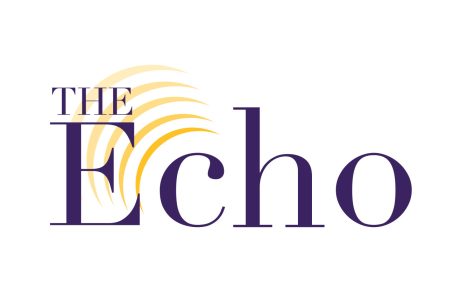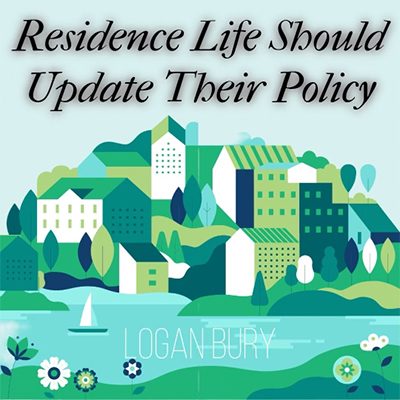Health and Wellness fee should include an opt out option and vary in amount
May 8, 2023
Editor’s note: This article was contributed by Janessa Garcia, a junior and political science major. The Echo welcomes submissions from campus community members.
After reading the article published by The Echo on Feb. 28 about a Health and Wellness fee being instituted varying in amount, with no option to opt out, the fluid verbiage struck me.
Mental health is a serious issue that, in every case, should not be downplayed and deserves effective solutions so that students who need it can adequately receive what they deserve. Some points, such as there needing to be more psychiatrist hours because the current hours are too limiting for students in need, are valid and I am glad that the university is taking action.
Julie Kuehnel, faculty representative, said the Faculty Senate is “very much” in favor of the Health and Wellness fee because faculty sees how stress students have manifests mentally and/or physically.
However, I found issues with the lack of clarity in the plan, benefits as supported by data, the imposition of it with no option to opt out, commuters and residents facing the same cost and the records provided which demonstrate very few students are being represented by the “health” portion. If all students are required to pay a fee, then it is only fair that a majority of students are being represented or that a majority support the plan.
The verbiage mentioned in the initial article from those spearheading the plan, however, was unclear and unsettling. The article includes that, “currently, the psychiatrist is on campus one day a week; Student Affairs is planning to add a second day” (emphasis mine). This felt as if the university planned the flat-rate fee before cementing the initiative, measuring its effectiveness and/or how this fee would impose on all students since tuition next semester is already increasing by $2,380.
Though all students will be made to pay, there is a difference in pricing depending on if a student is an undergraduate, graduate, professional or students at the Pacific Lutheran Theological Seminary. Interim Vice President for Finance Richard Ysasi said in the initial article that the difference is based on the amount of time students spend on campus.
However, all undergraduate students were grouped into the same cohort. If the rationale behind having graduates and professionals pay less is because they commute, then would it not support the grounds of having undergraduate commuters pay less as well, given that only 48% of traditional undergraduates live on campus?
Another issue is that students are not being given the opportunity to waive the fee. At neighboring universities like Loyola Marymount University, fees like this are not imposed. Their health fee is optional and is waivable if proof of coverage is shown.
I could not receive an explicit answer, or one at all, when inquiring about why the option was not going to exist for students, or how billing students, who already have access to these resources outside, was going to impact them.
Director of Health Services Saul Miller said in the last five years, one of the most significant increases seen was in students’ utilization of mental health services.
Chris Paul, a co-chair of the CARE Team, assistant Dean of Students, director of Residence Life and deputy Title IX coordinator, said, “They’re [Counseling and Psychological Services] booked through the whole semester and they have been for a month, maybe a month and a half. So you know, a student who doesn’t have access to other healthcare or doesn’t have a car or its hard for them to get to an off-campus psychiatrist and they need medication – that’s a problem.”
These statements suggest why additional hours to visit a psychiatrist on campus and TimelyCare are being added.
So, although I honor the university for addressing mental health, I find it unfortunate that students who have access to these resources outside are not allowed to waive the fee, and I also question if other methods could have been explored so that students, in general, could have access at no cost, such with the University of Redlands, who give its students access to TimelyCare, but they actually contracted with the provider in a way so that students can utilize the resources for free.
The “wellness” aspect is intended to increase staffing to expand the intramural sports program and will provide students with wellness workshops, speakers, educational programs, and the ability to have access to peer health mentors.
“It’s kind of backward thinking to provide that [intramural sports] when there may not be a need or a population that’s willing to go, because honestly, I don’t know how many students will access and use these new resources,” Nicole Cuadra, an undergraduate, said.
Cuadra said she recommended a pilot program be considered prior to imposing the fee so that the university could have statistical backing that would prove the need, success or want of the constituents.
If students are being charged, they deserve an itemized list that will tell them what they are receiving. The benefits and needs have not been made visible.
“There’s a lack of transparency of what it actually is providing for the student body. What are the benefits and how effective is the need being addressed?” Cuadra said.
Access to peer mental health mentors is unfortunate by the same standards as TimelyCare–in the sense that it is unfortunate that students are being charged to pay for “advocates and campus leaders to engage and educate students on issues surrounding health and well-being,” according to the job posting for the available positions.
I feel conflicted that students who are non-professionals are going to be paid $15.50 an hour to promote wellness, and that they are only needing to have three qualifications. Alongside customer service and event planning service, applicants need “some previous experience or education in Wellness related topics” to be hired (emphasis mine).
To ensure effectiveness, at the bare minimum, stricter qualifications should be enforced, or this resource should be eliminated if data to back the validity of this effort cannot be presented.
This initiative needs to represent a majority of students if a fee is going to be imposed. Students who need and want to utilize these resources deserve a robust initiative at the least costly amount. We deserve a voice and a choice in the matter.










